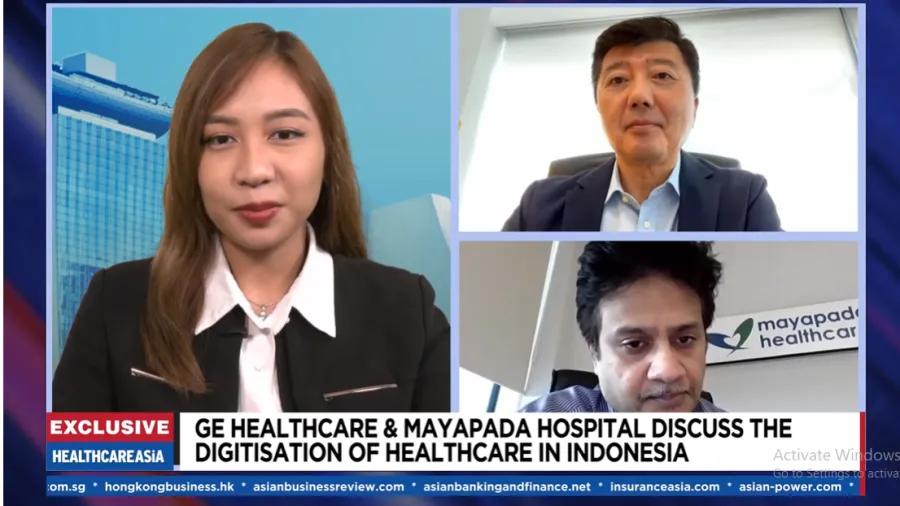
Mayapada Hospital employs AI to advance Indonesia’s healthcare infrastructure
It also taps into advanced hospital information systems to improve patient outcomes.
As Indonesia faces the challenge of getting 87% of its hospitals to implement electronic medical records in their services, the Mayapada Healthcare Group seeks to lead the healthcare industry’s digitalisation by investing in artificial intelligence (AI) and advanced hospital information systems (HIS).
Apart from this, the hospital is also extending facilities of its Centre of Excellence services such as oncology and has started offering advanced radiotherapy facilities in its largest hospitals.
Healthcare Asia sat down with Navin Sonthalia, chief operating officer of Mayapada Healthcare Group and Chris Khang, president and CEO of GE HealthCare in ASEAN, Korea, and Australia and New Zealand to discuss how their partnership has helped shape healthcare infrastructure in Indonesia.
What is the current state of digital and telehealth at Mayapada hospitals?
Navin Sonthalia (NS):
We are a medium-sized group in Indonesia with five operating hospitals — Mayapada Hospital Tangerang, Mayapada Hospital South Jakarta, Mayapada Hospital Bogor BMC, Mayapada Hospital Kuningan, and Mayapada Hospital Surabaya. Our sixth hospital will open in the first quarter of 2023.
Over the last four years, our group has significantly expanded its footprint in Indonesia. The COVID-19 pandemic has boosted our brand recognition as we have performed more than 700,000 PCR tests and treated thousands of patients since June 2020.
The pandemic threw the spotlight on telehealth and telemedicine, which were essential for continuity of care in spite of disruptions such as lockdowns. However, there is more to digitisation than just telehealth and telemedicine. As such, we see a need to adopt more advanced hospital information systems with various plug-and-play features.
How did the advanced HIS improve the hospital’s operations?
NS:
Advanced hospital information systems (HIS) leverage various technologies including the Internet of Things (IoT) to capture high quality and volume of data such as the individual healthcare records of patients.
The plug-and-play feature of an advanced HIS enables us to capture data at every step of the patient journey. This allows providers to improve the delivery of precision medicine and care, which enhances patient outcomes and saves more lives.
What are the strengths of Mayapada’s clinical excellence in serving patients and improving staff wellbeing?
NS:
COVID-19 has revolutionised the way we evaluate, diagnose, and treat patients. With that said, we established a centre of excellence for different therapeutic areas such as oncology and cardiology.
We continue to expand these across all our hospitals and provide end-to-end care from diagnostics to treatment and even post-treatment care.
With the rollout of this strategy, we continue to see increased demand for healthcare services even in the post-COVID phase. This could be due to a higher level of health awareness amongst the public and a backlog of elective surgeries from the last two years.
Tell us more about the hospital's oncology specialist treatment areas. How does the centre of excellence work?
NS:
At our centre of excellence, we are constantly bringing in new facilities for oncology treatment. We currently house our advanced radiotherapy facilities at two of our largest hospitals in the Mayapada Hospitals group - Jakarta Selatan and Tangerang hospitals.
What should we expect from Mayapada in the next three to five years?
NS:
Our focus in the next three to five years is on artificial intelligence and diagnostics. GE HealthCare is one of the AI service providers that best meet our needs.
GE holds a large volume of data on their database and can provide rich AI insights.
We are also looking to bring in state-of-the-art equipment for clinicians and patients and an advanced hospital information system is required to make this a reality.
For GE HealthCare, what is the trend of digitisation in Indonesia and how is it keeping up with the trends?
Chris Khang (CK):
Indonesia is adopting a holistic approach as its healthcare system undergoes digital transformation.
Part of this approach includes a government-driven initiative where the Ministry of Health will focus on six pillars for healthcare transformation. These pillars aim to address a variety of issues including healthcare access, primary care, and treatment for various therapeutic areas such as neurology, cardiology, and oncology.
At GE HealthCare, we have a clear vision and strategy to support the Indonesian government in addressing its priority areas across the six pillars which include primary care, health system resilience, health financing, secondary care, health talent, and health technology.
The centrepiece of this vision and strategy is to empower individuals to lead healthy lives through proactive and personalised care in the form of precision health. Precision health uses medical treatment informed by data to improve treatment outcomes for patients.
Digital and AI technology is key for precision health, and these elements play an important role in driving Indonesia's healthcare transformation. The use of digital and AI technology can broaden access to rural areas and remote areas, and enable accurate diagnosis and treatment, particularly in the neurology and cardiology space.
We expanded our collaboration with the government to support them in their nationwide digital imaging initiatives. The technology key to this project is our Edison Digital Health Platform - a GE HealthCare developed platform that combines and connects artificial intelligence to other smart devices. I believe this technology will help Indonesia achieve its next phase of transformation, particularly in the context of AI and digital transformation.
Is Indonesia lagging or advancing in digital healthcare within the Southeast Asian region?
CK:
Indonesia is definitely on its way to realising digital transformation in its healthcare system.
A combination of factors including the COVID-19 pandemic, support from the private sector such as Mayapada Group, and public-private partnership have leapfrogged Indonesia’s healthcare transformation. We are seeing a lot of interest to further improve the healthcare infrastructure in Indonesia.
The country is focused on providing better care for therapeutic areas such as cardiovascular, neurology, and oncology and is building treatment centres across the country.
While the COVID-19 pandemic is a painful experience for many, it was an opportunity for Indonesia to work in close partnership with private stakeholders such as Mayapada Group to transform its healthcare system digitally.
Disclaimer: This written article has been edited for length and clarity.



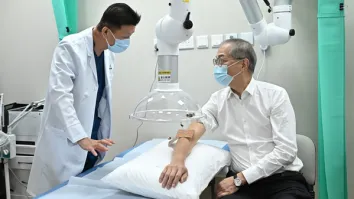
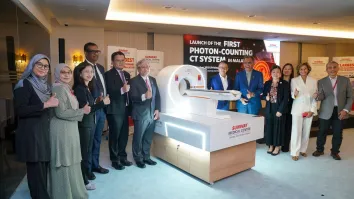
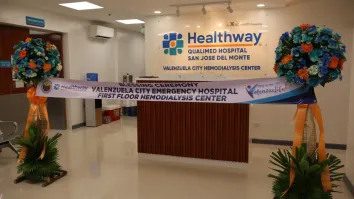
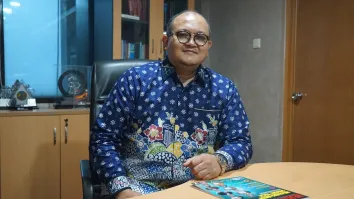












 Advertise
Advertise








